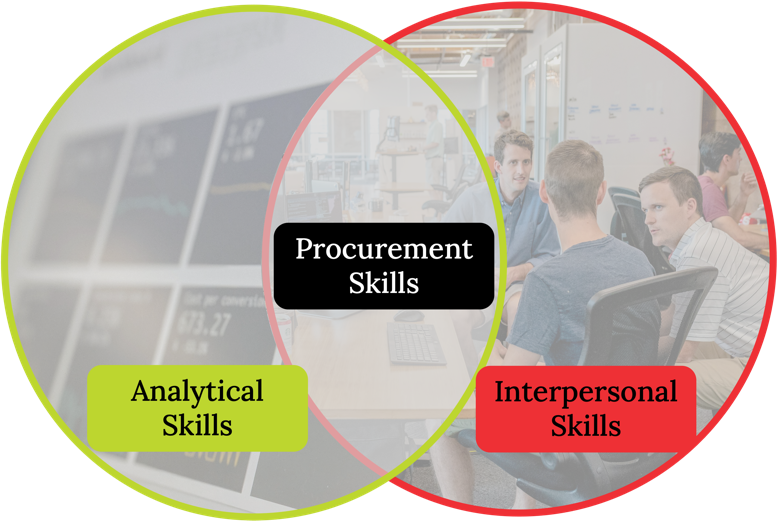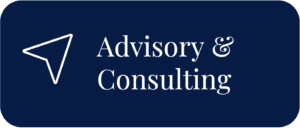As the CEO of a procurement consulting firm, I recently enjoyed a thought-provoking discussion with CPOs/ Heads of Procurement from three diverse sectors: FMCG, government and retail.
Our conversation quickly zeroed in on a burning question:
Should we be leaning more on analytical skills or relational skills?
Understanding Analytical vs. Interpersonal Skills in Procurement
Before we jump into the discussion, let’s define some key terms.
Analytical skills are the abilities used to collect, organise, analyse and interpret data and information to solve problems and make decisions.
These skills involve:
- Breaking down complex information into smaller parts
- Data analysis
- Identifying patterns and trends
- Financial acumen
- Market research
Interpersonal skills are the abilities used to interact and communicate effectively with others.
These skills involve:
- Communication
- Active listening
- Empathy
- Conflict resolution
- Teamwork
- Leadership
- Emotional intelligence
Both analytical and interpersonal skills are considered essential in procurement as they complement each other in problem-solving, decision-making, and effective communication.
Let me take you through the highlights of this enlightening discussion, peppered with my own insights and observations.
The Pressure of Procurement: Common Challenges Across Sectors
Regardless of sector, all CPOs nodded in agreement when discussing the relentless pressure to deliver more with fewer resources.
“It’s a constant tightrope walk,” admitted the FMCG CPO. “We’re expected to drive value while our budgets shrink.” The government CPO chimed in, “And we’re under the microscope for every dollar spent.”
The Push for Re-evaluation
This pressure is forcing a re-examination of procurement strategies across the board. But how are different sectors approaching this challenge? Interestingly, each sector prioritises these activities differently.
Importance of Analytical Skills in Effective Procurement
The FMCG CPO revealed a heavy reliance on advanced analytics: “We’re using AI-driven insights to stay ahead of market trends.”
In contrast, the government CPO emphasised Needs Analysis: “It’s where we can make or break a project. Getting requirements right is crucial in the public sector.”
The retail CPO swore by Supply Market Analysis: “In our environment, spotting trends early is our competitive edge.”
In my experience, four key analytical activities form the backbone of best-practice procurement:
- Opportunity Analysis: Identifying potential areas for cost savings or value creation.
- Needs Analysis: Understanding and defining the organisation’s requirements.
- Spend Analysis: Examining historical spending patterns to identify trends and opportunities.
- Supply Market Analysis: Assessing market conditions, supplier capabilities, and potential risks.
Importance of Interpersonal Skills in Effective Procurement
On the flip side, the relational aspect of procurement cannot be understated.
“Stakeholder and supplier relationships are our operational lifeline,” stressed the government CPO. Their focus? Getting procurement involved earlier in project lifecycles through cross-functional collaboration.
Negotiation: Beyond Price
The retail CPO shared insights on their negotiation tactics: “We’re not just after the best price. We’re building partnerships that can weather market changes.”
Interestingly, while the FMCG team excels at supplier relationships, they admitted it often takes a backseat to their data-driven approach.
Striking a Balance: Team Skills
The discussion naturally progressed to team structures. How do we organise teams to leverage both analytical and relational strengths?
The retail CPO advocated for a blended approach: “We aim for team members versed in both analytical and relational skills. It keeps us agile and aligned with our overall strategy.”
The key is finding the right balance for your specific organisational needs.
AI as a Tool in Procurement: Enhancing, Not Replacing, Human Skills
All CPOs acknowledged AI’s growing role in procurement, particularly in analytical tasks.
The Retail sector in our conversation seemed to be at the forefront, exploring AI for repetitive analytical tasks. However, as the FMCG CPO pointed out, “The human element in negotiations and relationship management is irreplaceable.”
The retail CPO agreed, emphasising that while AI might accelerate data processing, it won’t replace the nuances of stakeholder engagement anytime soon.
A Symbiotic Future
From my perspective, procurement’s future lies in a symbiosis of analytical prowess and relational finesse, powered by technology but driven by human insight.
One area we didn’t fully explore, but is crucial, is how to measure success in both analytical and relational areas. I propose a balanced scorecard approach:
- Analytical Metrics: Cost savings, process efficiency, supplier performance scores
- Relational Metrics: Stakeholder satisfaction, long-term contract stability, innovation from supplier collaborations

Top Takeaways: Balancing Data and Relationships in Procurement
Balance is crucial: Juggle analytical and relational activities, adjusting as needed.
Flexibility is key: Avoid rigid skill specialisation that might create silos.
Technology is a tool, not a solution: Use AI and analytics to enhance, not replace, human capabilities.
Relationships matter: Procurement is ultimately about people dealing with people.
As we wrapped up our discussion, I posed this question to the CPOs, and now I extend it to you:
- How are you balancing the analytical and relational aspects of procurement in your organisation?
- Are you leaning more towards data-driven decisions, or are you doubling down on relationship building?
In my years of experience, I’ve found that success in procurement isn’t about choosing between being analytical or relational – it’s about being analytically relational and relationally analytical. It’s about finding that sweet spot where data informs relationships, and relationships contextualise data.
To discuss Procurement Capability at your organisation or to join us for the next CPO lunch – connect with me on LinkedIn.
May use for a follow-on blog next month
Analytical skills:
- Conducting spend analysis to identify cost-saving opportunities
- Forecasting demand and supply trends
- Evaluating supplier performance metrics
- Risk assessment and mitigation strategies
- Cost modelling and TCO (Total Cost of Ownership) calculations
- Market analysis to identify potential suppliers and pricing trends
Interpersonal skills
- Building and maintaining relationships with suppliers
- Collaborating with internal stakeholders to understand needs
- Leading cross-functional teams on procurement initiatives
- Managing conflicts between suppliers or departments
- Influencing decision-makers on procurement strategies
- Coaching and developing team members
Overlap:
- Negotiating contracts by combining insights with relationship management
- Developing and presenting procurement strategies that balance numbers with stakeholder needs
- Managing complex projects that require both analytical rigor and strong communication
- Making decisions that consider both quantitative data and qualitative factors
- Adapting procurement approaches based on analytical insights and interpersonal feedback
- Strategically planning category management by integrating market analysis with supplier relationships
- Effectively managing time between data analysis and relationship-building activities








